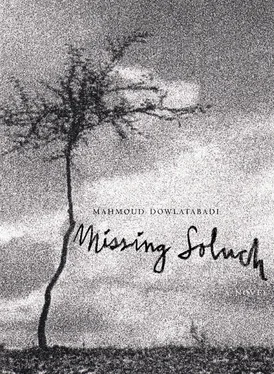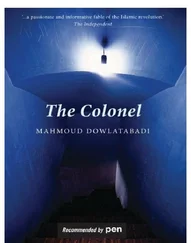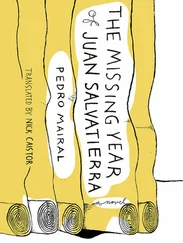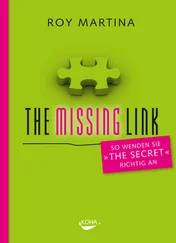That was right. Mergan had simply lost her tongue.
* * *
“Auntie Mergan, Auntie Mergan! Moslemeh wants you to come to their house tomorrow; they need help with the clay oven! Aren’t you at home, Auntie Mergan?”
Fall marked the coming of the water pump, and the return of the boys of Zaminej.
Only Ghodrat didn’t return.
“But why? Why only him?”
“He said, ‘Why should I return?’ He said he’d just have to go back again. ‘That’s a fool’s game,’ he said. ‘One needs to just go and find a place for himself.’ ”
“He didn’t give you a letter or something to give me?”
“No … He didn’t give me anything.”
“But where is he staying?”
“When the work as a field hand was done, he made his way to the capitol and sent word that he found work in a bakery there. But he said that working as a baker wasn’t his destiny. He was sure he’d find better work soon!”
“But what about me, his own father?”
Morad laughed and said, “He said my father can go to hell! I didn’t bring him to this world so as to now owe him something — he brought me here!”
Ghodrat’s father pulled away from Morad and Abrau and stood by a crumbling wall. There, he said, “Ghodrat, my boy! You’re tearing my heart out! I hope nothing will happen to you, my son! I hope that wherever you end up, you’ll have bread to eat and you’ll be healthy, my son!”
Abrau and Morad walked away from the weary, wretched old man. The sound of his lamentation faded as they left him behind. Morad’s pocket was full of money, and he was walking on clouds. He had no patience for sadness. He wanted to walk all around Zaminej in one go, showing himself off to all the people of the village. He had a new set of tight clothes on, and he walked as if parading for anyone who saw him. His left hand was thrust into his pocket, and he shook the change in the bottom of the pocket to make it jingle. Abrau took every opportunity to assess Morad’s clothes, if only to find some fault with the length or the cut of them. In Abrau’s mind, the clothes were strange. The pants were cut short and their crotch was too tight. The sleeves of his jacket also didn’t come to his wrists, and it seemed as if at any moment his sturdy shoulders were going to tear the jacket in two across his back! But Morad had no plans to take off the clothes before each and every inhabitant of the village had seen them. Morad was in love with the brown stripes that caught the eye as they crossed against the khaki background of his jacket and pants. Although Abrau had an impulse to try to buy the clothes off of Morad, Morad was not willing to consider selling them until the clothes lost some of their splendor. And Abrau would just have to eat his heart out waiting!
“So what do you say?”
“They’re not for sale, man!”
“But they look terrible on your body!”
“So it looks bad! Don’t look at me then!”
“Fine, I won’t!”
“Fine, then don’t!”
Shoulder-to-shoulder, they walked along with few words exchanged between them. They headed to Mergan’s house so Morad could visit Abbas. But neither Abbas nor Mergan was at home.
“Where did they go to, so early in the morning?”
“What do I know? None of us knows much about what the others are up to any more.”
“Are you fighting with your mother?”
“We don’t really speak. What is there for us to talk about?”
“What about your sister? How’s Hajer?”
“I hardly see her. The bastard won’t let her leave the house! Even if she just goes to fetch water, he watches her with four eyes instead of two.”
Morad reflected for a moment, and said, “Well, then …!”
Abrau changed the subject. “Mirza Hassan has started up the water pump. Let’s go and see if he has some work for you!”
Morad said, “What would I do that for? He’d have to beg me to even consider it. You think I don’t have enough? I have savings that will feed me until the next New Year without needing anything from anyone. And if on the day of the New Year I find my pockets are empty with nothing but some fleas in them, I’ll pick up my bag and put on my boots. And who knows, maybe this time I’ll go and not look back — like Ghodrat! What about you? I guess your work’s not too bad then?”
“Me … ah … no. My work’s not bad.”
“If you only could see all the tractors that are everywhere in the next province over! They’re like ants! No one there ploughs with cows any more. They even harvest the wheat with tractors as well. We can’t get work as harvesters, you know. Now we can only work on the summer planting. The summer planting has to be done by hand, so the tractor’s no good for that. And over there, the summer work pays really well, since you’re so close to the capitol. The harvest gets to the market in two hours. Nothing goes bad before it’s sold. But that’s honeydew for you! Each one is three or four man in weight. Sweet as honey. If you eat one, you’re full till sundown. It’s really something!”
“What about the work? Is it hard?”
“Work’s work, you know? Have you ever known it not to be hard? You have to pick and dig at the same time. And that’s under the hot sun, with flies and salt water. You can imagine the rest. You start at dawn and end at dusk. Either the landowner or his brother or his son is standing over your head. If they’re not there, you still have the foreman to deal with. If you’re not in good shape, they can be ruthless! Ghodrat himself ended up going to the capitol mostly because he wasn’t strong enough for the summer work. That’s why he went to find some other nook or cranny for himself. I didn’t want to tell his father this, but I heard he had fainted a few times while working. I was working somewhere that was not far from where he was. I heard they had to drag him out of the field into the shade and they threw a bucket of water on him. The problem is that once something like that happens, you’re stuck with that reputation. You become known as lazy or weak and then no one will hire you any more. That’s why Ghodrat saw the writing on the wall and decided to find some work in the city. If you’re a good worker, you’ll get a good name, but if you’re a bad worker … If you work well, the owners will sing your praises, but if you don’t, they look at you as if you’re worse than a dog.”
“How about you? With this fancy outfit on, you must have gotten a pretty good name, no?”
“I worked as hard as a Sistani bull for people who were totally ungrateful!”
They’d reached the outskirts of Zaminej. Mirza Hassan’s tractor was parked beside the wall. Abrau made a half-circle around the tractor, kicked the tires, and then checked its oil. He climbed on top of the machine like a professional and fit himself onto the seat.
“Jump up!”
“What? You’re going to take it for a spin?”
“Why shouldn’t I? You think I can’t?”
“You mean in the time we went and came back, you’ve become a driver?”
“Are you surprised?”
“No … No … But …!”
“No buts! You went and came back and in that time I’ve gone and ploughed about half of the lands of the villages around here.”
Small-boned Abrau was in the driver’s seat and Morad, with his tight clothes, climbed on board with difficulty and sat next to his friend. Abrau acted as if he were riding on the back of a hawk. His hands moved quickly and confidently. He gripped the wheel in his hands, turning it smoothly from one side to the other. With every movement he answered Morad’s inquiring look.
“This is the gear. You see! Now it’s in its place.”
Abrau held onto the steering wheel with his left hand, and with his right he moved levers that Morad did not know the use of.
Читать дальше












